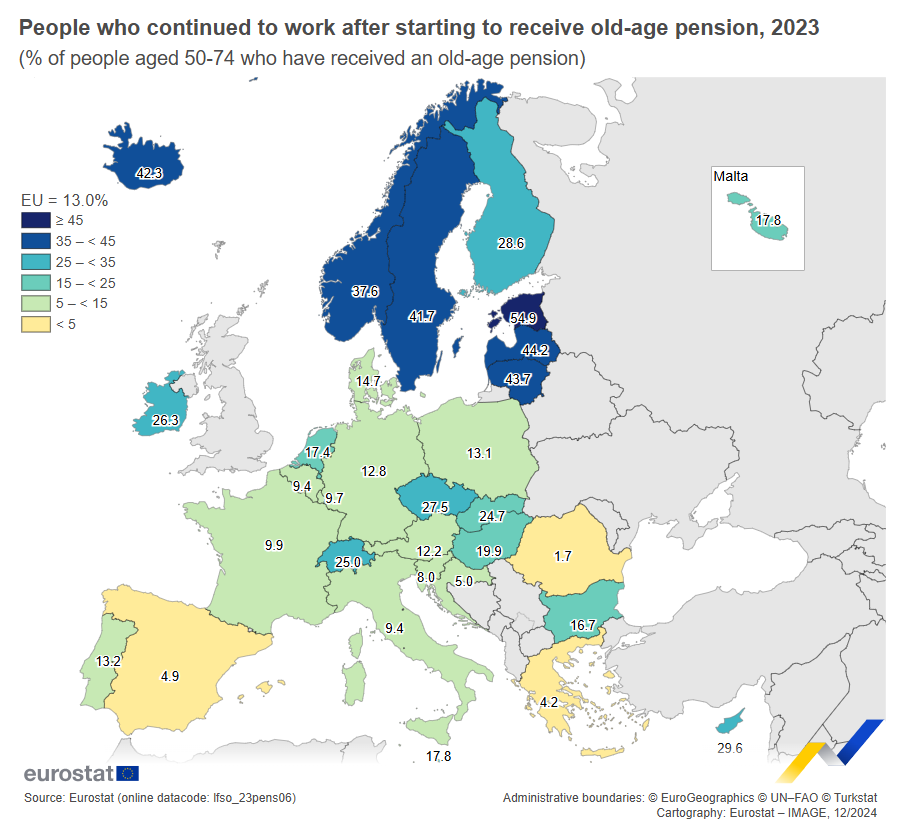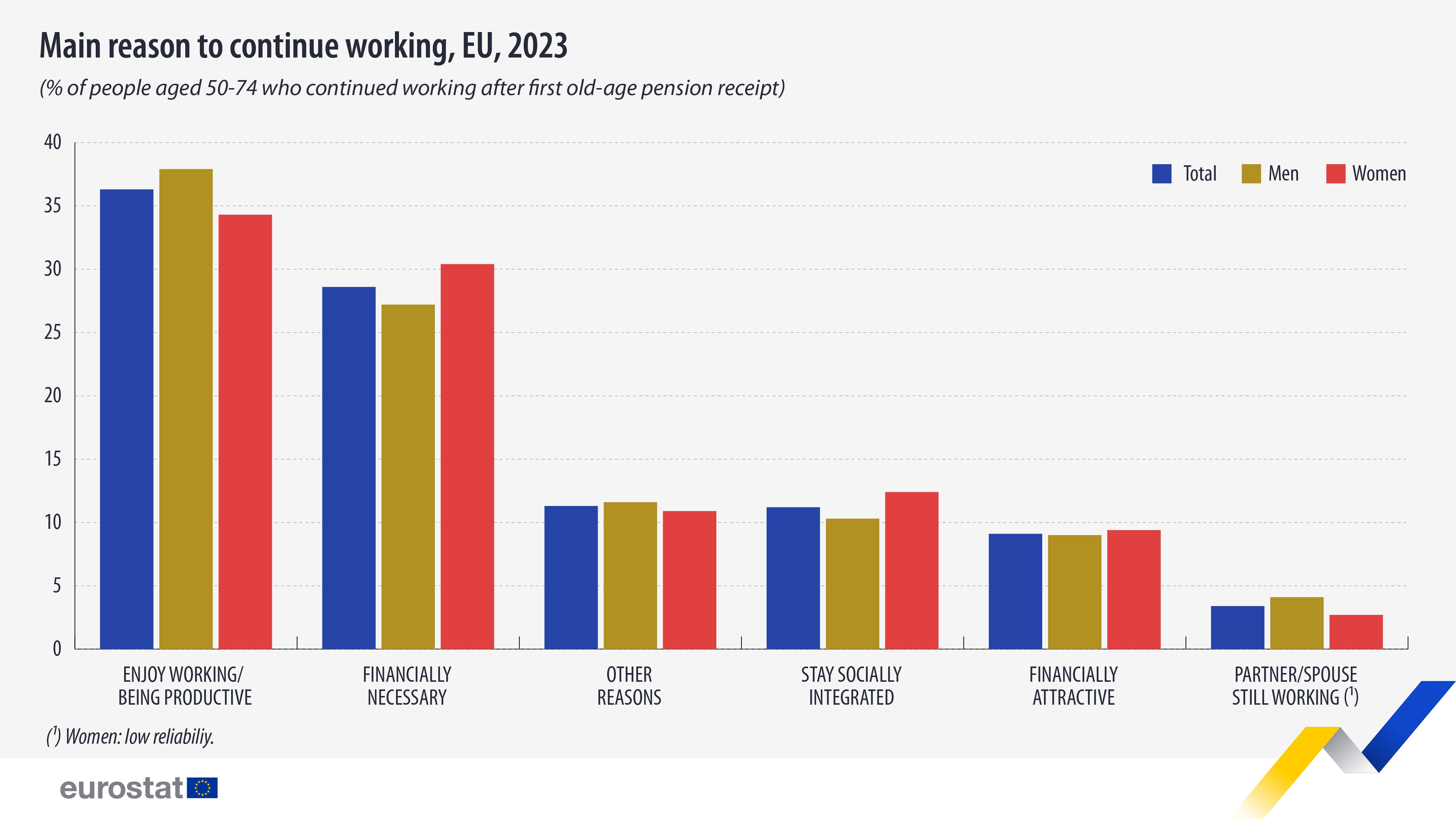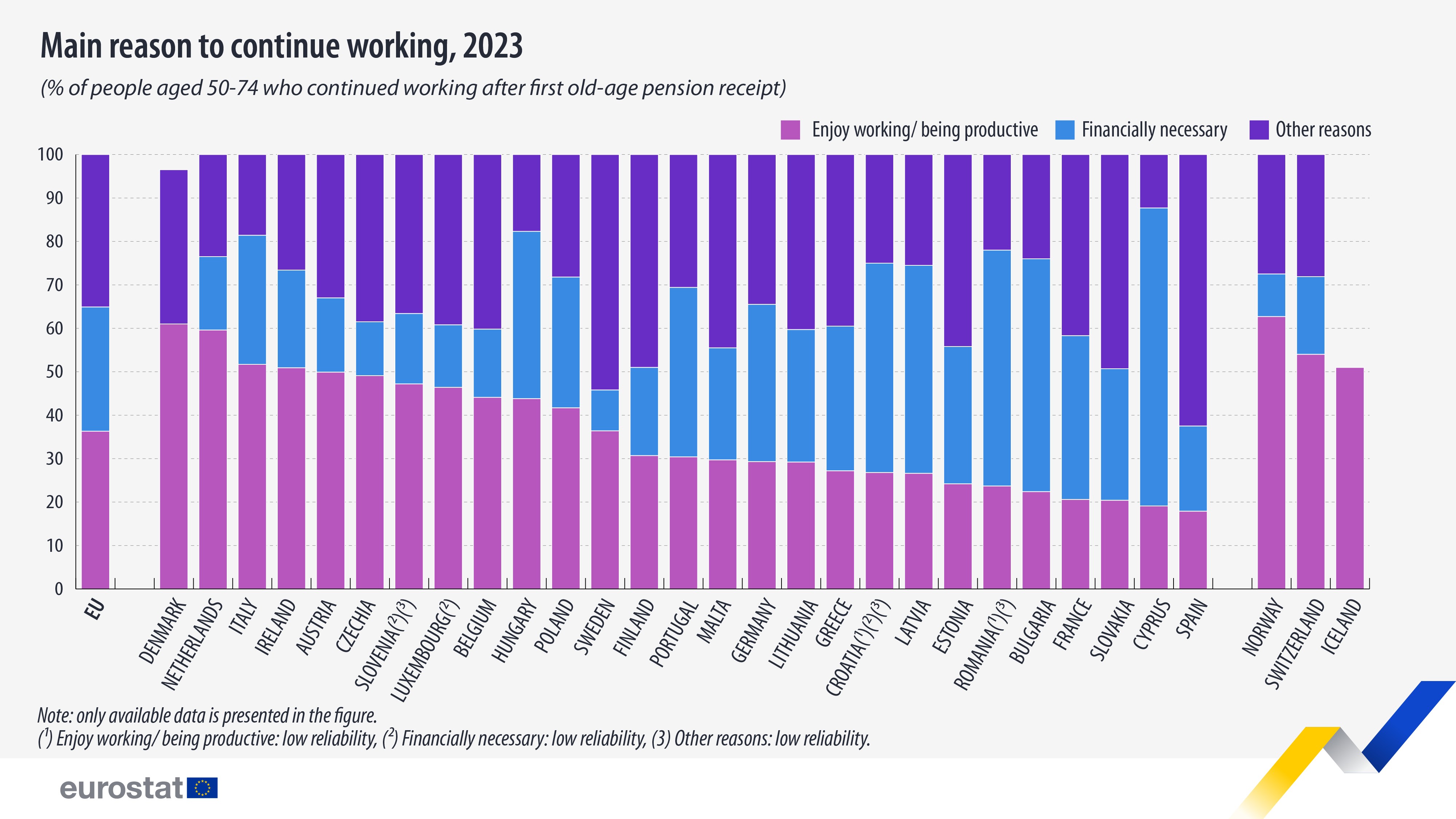13% continued working after receiving old-age pension
Among those who continued to work, about half continued as before while for the other half, there were changes, such as changing jobs, working fewer hours, or working in a second job while stopping the first job.
The highest share of people who continued working were found in the Baltic countries, Estonia (54.9%), Latvia (44.2%) and Lithuania (43.7%), while the lowest share were registered in Romania (1.7%), Greece (4.2%) and Spain (4.9%).

Source dataset: lfso_23pens08
The main reasons for people to continue to work after receiving an old-age pension were because they enjoyed working and being productive (stated by 36.3% of people) or did so due to financial necessity (28.6%).
A desire to maintain social integration (11.2%) and the financial attractiveness of work (9.1%) were also mentioned as reasons for continuing to work. A smaller proportion, 3.5%, continued working because their partner was still employed.

Source dataset: lfso_23pens08
Denmark (61.0%), the Netherlands (59.6%) and Italy (51.7%) had the highest proportion of people who continued working because they enjoyed it. By contrast, the smallest proportion of people reporting this reason was in Spain (17.9%), Cyprus (19.1%) and Slovakia (20.4%).
On the other hand, financial necessity was the main reason for continuing to work in Cyprus (68.6%), Romania (54.3%) and Bulgaria (53.6%), while Sweden (9.4%), Czechia (12.4%) and Luxembourg (14.4%) registered the lowest share.

Source dataset: lfso_23pens08
For more information
- Statistics Explained article on pensions and labour market participation - main characteristics
- Thematic section on labour force statistics
- Database on labour force statistics
If you have any queries, please visit our contact us page.
